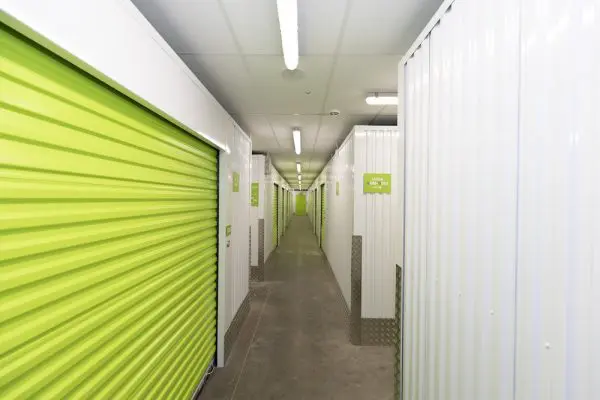
The practice of renting storage space has gained significant traction among individuals and businesses aiming to reduce clutter, store surplus inventory, or protect valuable possessions. However, despite its advantages, numerous individuals still fall into costly traps when selecting a storage facility. Such errors can result in unnecessary financial burdens, inefficient use of space, or potential security threats.
Discover the common mistakes to avoid when renting a storage place in Singapore, allowing you to fully capitalise on your storage experience in the city-state.
7 Common Pitfalls to Avoid When Renting Storage Space in Singapore
Not Accurately Assessing Your Storage Needs
One of the most frequent mistakes people make when renting storage space is underestimating or overestimating their storage needs. This mistake often results in renting too large or too small a unit, leading to wasted money or insufficient space. Assessing your items is necessary when selecting a storage rental. Take an inventory of everything you plan to store, including bulky items such as furniture and appliances. Don’t just rely on estimates—use actual measurements to calculate the cubic footage required. Many storage providers offer website size guides or calculators to help with this process. Selecting a space too small will force you to cram items, increasing the risk of damage. Opting for a larger space means paying for more than you need.
Neglecting to Consider Accessibility
Accessibility is critical when selecting a storage space rental, yet it is often overlooked. Many individuals choose a storage place solely based on location and price without evaluating how often they’ll need to access their items. If you need frequent access to your stored belongings, such as business stock or seasonal equipment, ensure that the storage facility offers 24/7 access or extended hours. Additionally, assess the ease of access within the facility—some storage spaces are multi-leveled or have narrow corridors, making it challenging to move large items in and out. For those who need regular access, proximity to your home or office may outweigh a marginally cheaper rate elsewhere. Accessibility also includes evaluating parking availability, loading docks, and the availability of trolleys for transporting heavy items.
Overlooking Security Features
Security should be a top priority when renting storage. Unfortunately, many renters neglect to investigate the security measures at the storage facility. Remember, your belongings’ safety depends on the security the facility offers. Before finalising a storage rental, inquire about the facility’s security systems. Does the storage space have 24/7 CCTV monitoring? Is there a secure access control system in place, such as pin codes or keycard entry? Are there on-site staff during operating hours? Furthermore, check whether the facility offers individual unit alarms and if the premises are well-lit at all times. Skimping on security can result in stolen or damaged items, so selecting a storage facility that prioritises safety is necessary.
Failing to Factor in Climate Control
Climate control is often an underestimated aspect of storage options. Depending on the type of items you intend to store, renting a climate-controlled unit might be necessary to prevent damage from humidity or temperature fluctuations. Items like electronics, artwork, photographs, documents, or antique furniture can be particularly susceptible to moisture and heat. Singapore’s tropical climate is humid year-round, and improper storage conditions can lead to mould growth, warping, or degradation of materials. Be sure to evaluate whether your belongings require a climate-controlled environment and inquire about the cost and availability of such units at your chosen facility. Failing to account for this could result in costly damages to valuable items.
Not Reading the Fine Print
A common mistake made during storage rental is neglecting a thorough review of the rental agreement’s terms and conditions. It’s necessary to understand the full scope of the contract before signing, as many renters miss key details regarding payment terms, notice periods for vacating, or penalties for late payments. Some facilities may have strict policies regarding the types of items that can be stored (e.g., no flammable or perishable goods) or require insurance for high-value items. Hidden fees for administrative tasks, locks, or additional services like pest control may also not be immediately apparent. Always take the time to carefully read through the contract and ask for clarification on any unclear points to avoid unexpected costs or conflicts later on.
Skipping Insurance Coverage
Many renters assume that their belongings are automatically insured once stored in a facility, but this rarely happens. Whether you are storing personal items or business assets, purchasing insurance coverage is critical for protecting your valuables. Many storages for rent offer insurance plans or can recommend third-party providers, but this coverage is often optional. Without proper insurance, you risk significant financial losses in the event of theft, fire, or other disasters. When renting storage space, verify what type of insurance coverage is available and whether it is sufficient for the value of your stored items. Depending on your needs, you may also want to check with your home or business insurance provider to see if your policy extends to off-site storage.
Overcommitting to Long-Term Contracts
Many storage facilities offer discounts for long-term storage commitments, which can seem like an appealing way to save money upfront. However, overcommitting to a long-term contract without thoroughly assessing your future storage needs can be a mistake. If your circumstances change and you no longer require the storage space, breaking the contract can lead to penalties or losing the prepaid balance. Starting with a shorter-term rental is necessary if you’re uncertain about your long-term storage requirements. This approach gives you flexibility and allows you to adjust your storage arrangement without being locked into a lengthy agreement.
Conclusion
Leasing storage in Singapore presents a practical option for individual and commercial purposes; however, it is essential to steer clear of prevalent errors to maximise the benefits of your rental. You can circumvent possible challenges and foster a satisfactory storage experience by thoroughly evaluating your storage needs, emphasising security measures, guaranteeing easy access, contemplating climate control options, meticulously reviewing contracts, obtaining insurance, and maintaining flexibility in rental agreements. Remember, being well-informed and adequately prepared will assist you in selecting the most suitable storage rental for your circumstances.
Contact Spacehub and let us help you declutter your life or secure your business inventory

